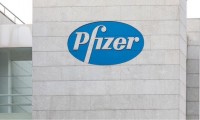-
ACNAP 2023 highlights the artistic and scientific dimensions of cardiovascular care
- Source: drugdu
- 327
- June 5, 2023
-
American College of Cardiology to host annual Care of the Athletic Heart course
- Source: drugdu
- 273
- June 5, 2023
-
Look out, GSK. Pfizer has its adult RSV vaccine approval and is raring to launch
- Source: drugdu
- 544
- June 5, 2023
-
Coherus, Junshi eye FDA finish line after agency finally conducts plant inspection
- Source: drugdu
- 412
- June 5, 2023
-
EMA grants PRIME designation to Rocket’s AAV-based gene therapy
- Source: drugdu
- 296
- June 5, 2023
-
FDA approves ANDA of 20mg generic Nitisinone capsules
- Source: drugdu
- 238
- June 5, 2023
-
FDA hits iRhythm with warning letter over problems at heart monitor facility
- Source: drugdu
- 406
- June 4, 2023
-
Novel technology helps analyze tumor growth in another dimension
- Source: drugdu
- 330
- June 4, 2023
-
report
- Source: drugdu
- 260
- June 4, 2023
-
Former Novartis execs cleared of Greek bribery charges after yearslong investigation
- Source: drugdu
- 316
- June 4, 2023
your submission has already been received.
OK
Subscribe
Please enter a valid Email address!
Submit
The most relevant industry news & insight will be sent to you every two weeks.
















